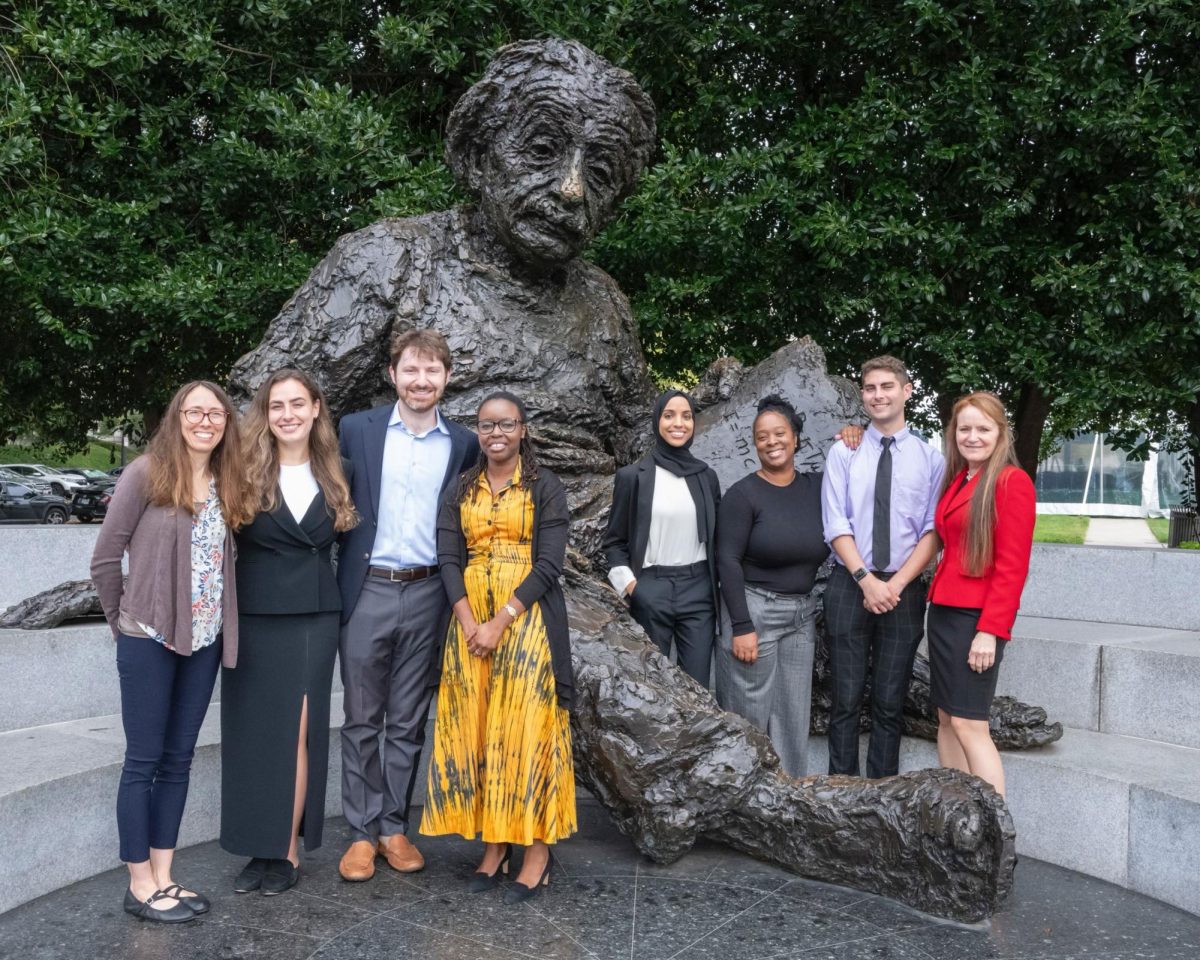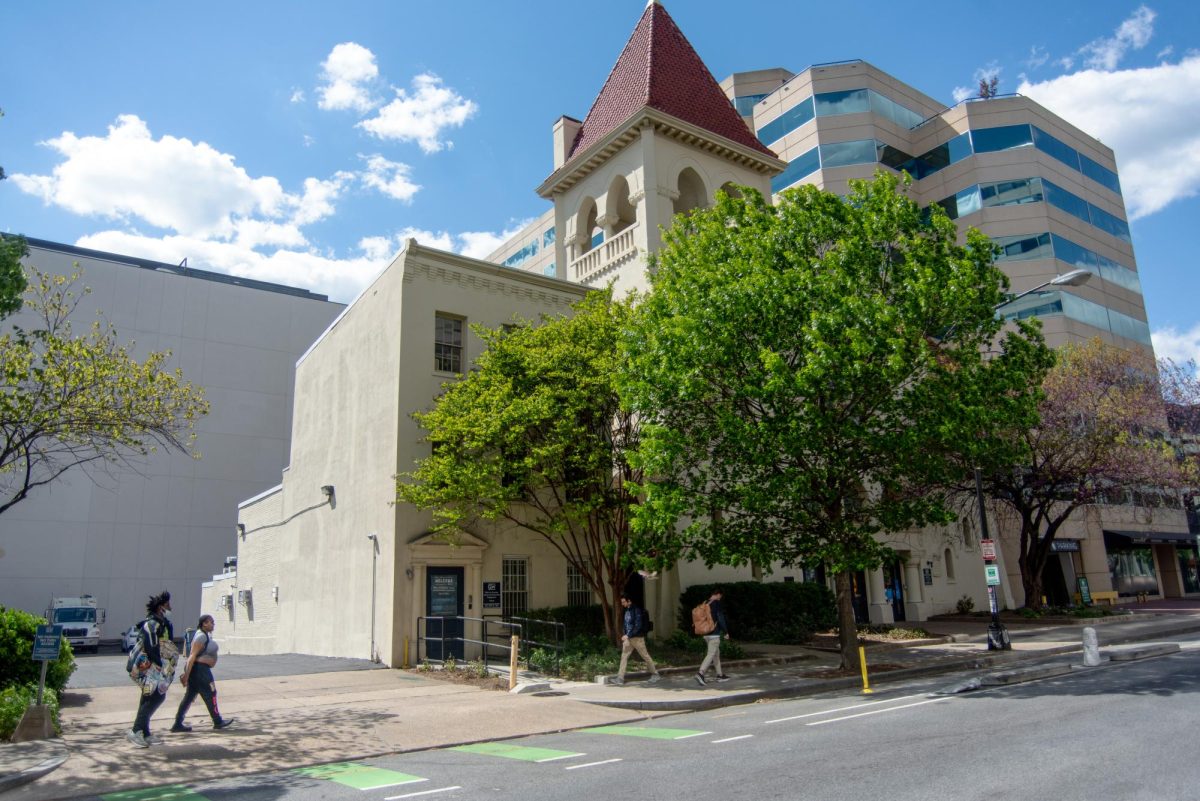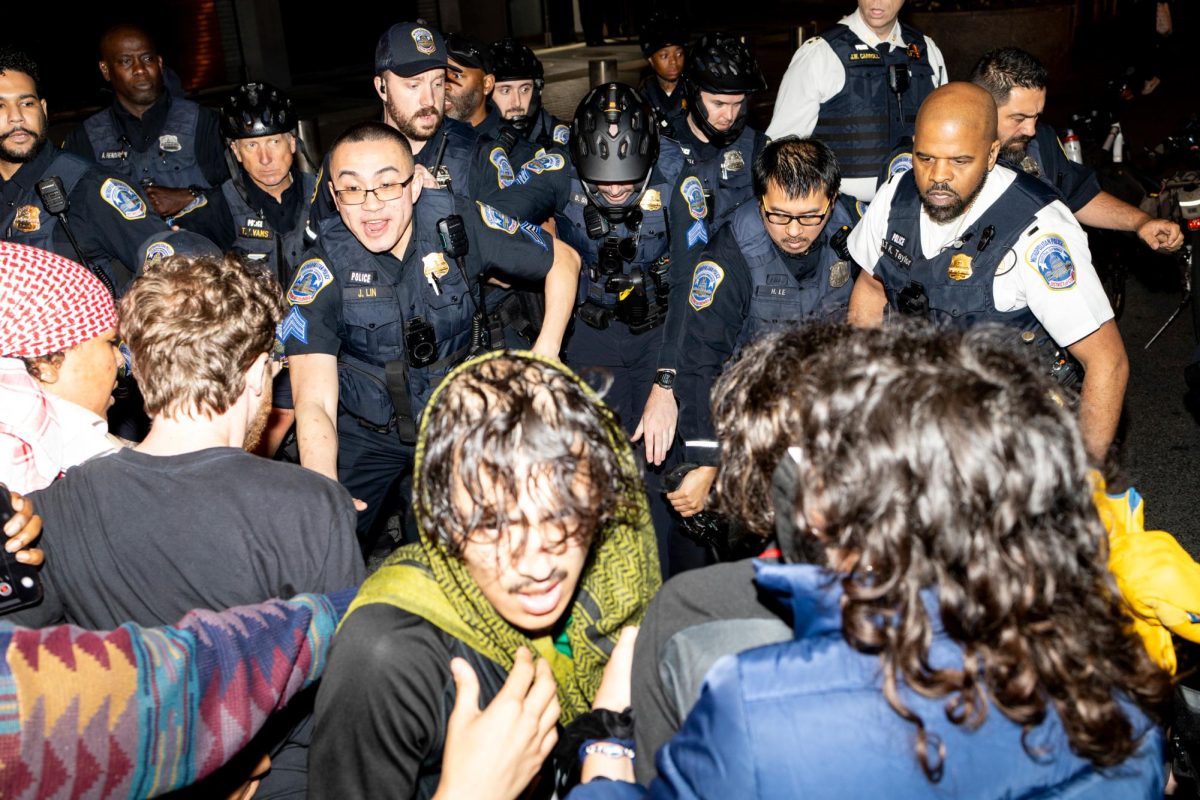A GW team won first place in a contest that challenged participants to improve the health of women experiencing homelessness with a proposal that focuses on improving the mental health and safety of unhoused LGBTQ+ youth.
The team won the 2023 D.C. Public Health Case Challenge, in which teams from D.C.-area universities competed with a hypothetical $1 million budget and presented proposals to a panel of public health and D.C. homelessness expert judges who evaluated the feasibility, practicality and creativity of their solutions addressing unhoused women’s health. The GW team won with their proposal titled “& Every Woman,” which outlined an increase in mental health resources, physical and psychological safety in shelters and policy-related advocacy for 18- to 24-year-old LGBTQ+ unhoused youth.
Wendy Post, a first-year doctoral nursing student, said the team’s proposal had a three-pronged approach: mental health resources, mentor connections and community connections. She said the team focused on LGBTQ+ youth because they are the largest group of youth in need of housing and safety interventions in the District and many of them experience anxiety and depression that revolves around coming out to their families and grasping their sexuality.
“We’re talking about people who are experiencing anxiety and depression because they have come out to other people about their identity throughout their lives and are continuing to be stigmatized and isolated in having social othering or self-isolation and physical violence or housing instability,” Post said.
GW’s team of students included Post, Nick Jennings, Soukeyna Sylla, Fatima Elgarguri, Shawn Bayrd and Anna Hochberg, with two faculty advisers.
LGBTQ+ youth account for 30 to 40 percent of unhoused youth nationally and 24 percent of unhoused youth in the District, according to D.C. data from 2017. LGBTQ+ youth are more likely to experience homelessness due to familial conflict and are at a greater risk of sexual exploitation, sexually transmitted diseases and mental health problems, according to the data.
Post said the proposal’s mentor connections prong involves hypothetical LGBTQ+ mentors who connect with unhoused youth through social media apps like Discord and help them transition into housing. She said LGBTQ+ youth experiencing homelessness could use social media as a space to post concerns, connect with their community and allow the team to locate them geographically to pair them with a mentor.
Post said the community connection prong involved publishing a map of anxiety and depression resources relevant to unhoused LGBTQ+ women. Post said physical and mental health resources are in place for LGBTQ+ unhoused women, but they’re inaccessible because of the lack of knowledge the population has of the resources, driving the team to connect unhoused women to these services.
“It’s that the services are not being connected to the population that need it the most, and so we just kind of had an ‘aha moment’ as a team to say, ‘You know what, let’s connect the population to the services, let’s bring the services to this population,’” Post said.
Nick Jennings, a fourth-year medical student, said the relatively small amount of hypothetical funding over a short period propelled the team to focus on a smaller population of young women who identify as LGBTQ+.
Of their project’s hypothetical $1 million budget, the team allocated approximately $976,000, with the money split evenly among the two years to help 282 individuals, Jennings said. He said the team used $467,000 for policy and advocacy and allocated $35,000 toward monitoring and evaluation costs.
Jennings said the community connections cost $325,000, with their Pink Refuge prong — which has the goal of increasing shelter safety — taking about half of the portion for sensitivity training for shelter staff and residents. He said they also implemented bystander workshops to develop intervention skills for cases of harassment or discrimination and increase shelter safety, which could be facilitated by Whitman-Walker, a health center for the LGBTQ+ community.
“Ideally, the goal would be to increase perceptions of safety and support among our target population, so people would feel safer in shelters specifically because part of the reason some women who identify as LGBTQ don’t necessarily live in the shelters and live out on the street, is partially because they don’t feel safe in these environments,” Jennings said.
Jennings said bolstering shelter safety would improve access to mental and physical health resources for unhoused youth because some shelters provide these services on-site.
“Social isolation, exclusion and systemic discrimination are all root causes of homelessness for LGBTQ young adults and barriers to access to services in this population,” Jennings said.
Soukeyna Sylla, a member of the 2022 cohort of the Doctor of Public Health program, said improving shelter staff’s competency can improve safety since women experiencing homelessness can face sexual harassment or assault in the shelters.
Experts in public health law and behavior science said LGBTQ+ youth experiencing homelessness often lack housing and mental health services, stressing the significance of gathering information on the population’s needs.
Marta Beresin, the deputy director of the Health Justice Alliance Law Clinic at Georgetown University, said mental health is especially relevant for unhoused LGBTQ+ youth because of social pressures they may experience in school and among peers, which bystander training can aid.
“Kids are experiencing even bullying, LGBTQ youth in schools and D.C., I’ve heard of this recently,” Beresin said. “Bystander training could go a long way to build empathy among non-LGBTQ students and staff, and so it would have sort of a dual purpose of making our schools safer for LGBTQ youth as well as our streets.”
Sarah DeWard, a professor in behavioral sciences at the University of Michigan, said researchers need to highlight women and LGBTQ+ populations when discussing homelessness because of structural inequalities like lower wages and health discrimination that make them more vulnerable to becoming unhoused.
“One thing we have to remember also the gendered nature of this, that there’s a reason why we had to talk about women’s homelessness and not homeless in general, and that’s to remember that women are uniquely suited to be negatively affected by multiple types of intersectional oppressions,” DeWard said.








